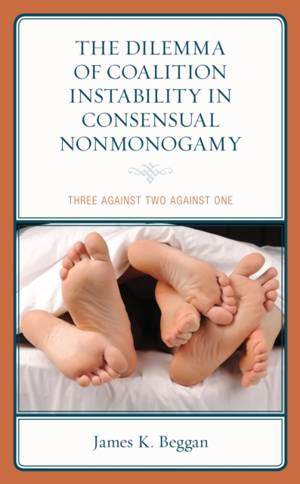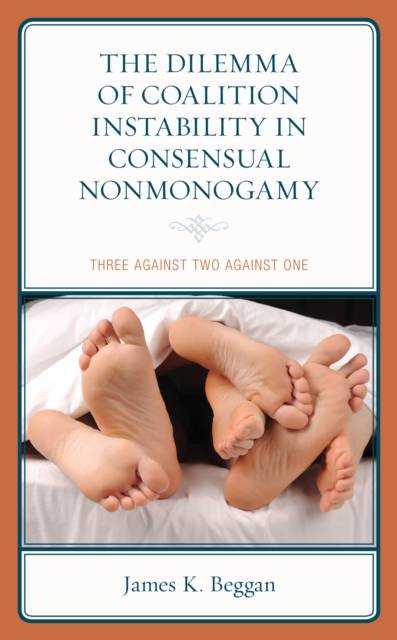
- Afhalen na 1 uur in een winkel met voorraad
- Gratis thuislevering in België vanaf € 30
- Ruim aanbod met 7 miljoen producten
- Afhalen na 1 uur in een winkel met voorraad
- Gratis thuislevering in België vanaf € 30
- Ruim aanbod met 7 miljoen producten
Dilemma of Coalition Instability in Consensual Nonmonogamy
Three Against Two Against One
James K BegganOmschrijving
Different forms of consensual nonmonogamy, such as polyamory and swinging, have achieved greater prominence in daily conversation and representation in mass media. Although advocates recognize that the presence of additional people creates difficulties, the author argues that this greater complexity may lead to unavoidable instability. Drawing from classic work by Georg Simmel as well as modern research in the social sciences, James K. Beggan considers how the presence of a third person is what allows the formation of coalitions which then become part of the process that can break apart the triad. This paradox--explained with reference to game theory and social interdependence--represents the existential threat to the quest for consensual nonmonogamy. Beggan describes how psychological processes involving social comparison and gender and sexual orientation can limit the formation of certain types of coalitions which, in turn, influence which relationships can be expected to emerge in the context of consensual nonmonogamy. His analysis includes macro-level social issues related to establishing consensual nonmonogamy as a valid social identity and alternative to conventional marriage. Using insights from game theory, he suggests possible meta-solutions to coalition conflicts that emerge in triadic romantic and sexual relationships.
Specificaties
Betrokkenen
- Auteur(s):
- Uitgeverij:
Inhoud
- Aantal bladzijden:
- 240
- Taal:
- Engels
Eigenschappen
- Productcode (EAN):
- 9781793619372
- Verschijningsdatum:
- 18/11/2020
- Uitvoering:
- Hardcover
- Formaat:
- Genaaid
- Afmetingen:
- 152 mm x 229 mm
- Gewicht:
- 489 g

Alleen bij Standaard Boekhandel
Beoordelingen
We publiceren alleen reviews die voldoen aan de voorwaarden voor reviews. Bekijk onze voorwaarden voor reviews.









